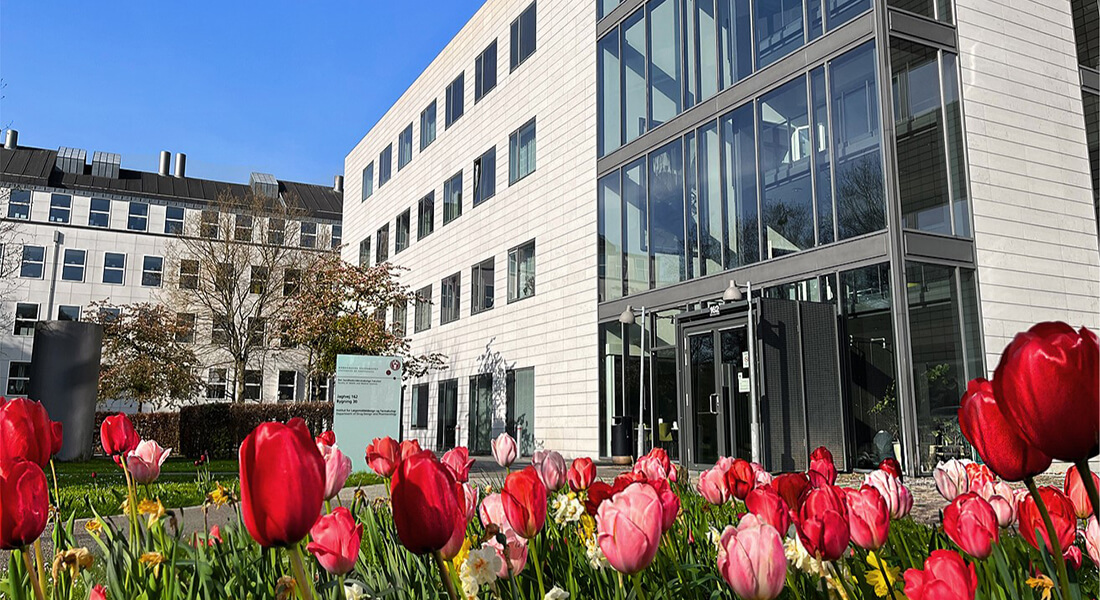
About the department of Drug Design and Pharmacology
ILF Research Vision 2025-2030
The Department of Drug Design and Pharmacology (ILF) is committed to interdisciplinary and translational drug research, which link basic and applied directions to generate and leverage new knowledge and drive innovation in the field. To excel and lead in this endeavor, the department is committed to embracing novel technological advances and meeting the evolving needs in society. Towards 2030, we will strengthen our research portfolio by expanding into pioneering research areas and exploring directions new to the department as outlined below:
There is a strong need for innovative and advanced therapeutic approaches for treating diseases that are beyond the medical intervention by classical small molecule drugs. Such new modalities may address unmet needs in the healthcare system and provide more targeted therapies applicable for precision medicine and/or therapies that act through novel mechanisms of action. We will therefore extend our existing strongholds, within small molecule and biopharmaceutical discovery of tool compounds and drug leads, to include innovative modalities that are new to the department. We will therefore establish research within areas such as (i) nucleic acid-based therapies, e.g., small interfering RNA or microRNA, (ii) next-generation polyfunctional chemotypes, e.g., proximity-based therapeutics, and (iii) targeted radionuclide therapy.
The ability to predict protein structures can be harnessed to design proteins as new therapeutics with preprogrammed biological functionalities. Protein design therefore holds great promise for development of highly specific and effective protein and peptide-based drugs for treatment of diseases that cannot be tackled by traditional small molecule drugs. Protein design at ILF will be interdisciplinary, linking medicinal chemistry, biopharmaceutical research, structural biology, and pharmacology research towards innovative and contextualized pharmaceutical protein design.
There is huge potential in data-driven drug discovery, where AI-techniques are used to extract insights from the vast chemical and pharmacological data available. The aim of these efforts is to create new molecules with desired pharmacological properties, to predict the efficacy of new molecules, and to provide efficient preclinical and clinical models. By adding a strong data science research component to our existing experimental research within life sciences, chemistry, structural biology, and pharmacology at ILF, we can continuously develop improved models by training on relevant high-quality data sets, by synthesizing advanced tool compounds, and by exploring biomolecular drug interactions of complex systems. Not only will data-driven drug discovery provide faster and more accurate advancements in drug discovery, it will also enable a more sustainable drug discovery and development process, and thereby lay the foundation for translational and personalized treatment, vide infra.
Tailored medical treatment, aligned with the individual patient’s unique characteristics, should be integrated seamlessly in a translational approach ranging from basic preclinical studies to patient-centered clinical (poly)pharmacy practice. Thus, insights from, e.g., molecular and cellular pharmacology, pharmacogenomic mappings, biomarker identification, pharmacokinetic modelling, clinical pharmacy, wearable devices, digital health platforms, and “real-world” patient data will be used to fuel AI-powered translational prediction models, providing clinical decision support systems for personalized treatment recommendations. To further expand our strength in translational research, the department will focus on patient-centered clinical trials and the repurposing of medicines, aiming to accelerate the development of impactful treatments for a wide range of diseases.
Copenhagen Centre for Regulatory Science (CORS) at Department of Pharmacy (IF) has strong ties to the Pharmacovigilance group and Drug Safety group at ILF – and the three research groups are currently working on establishing Copenhagen Centre for Regulatory Science and Surveillance (CORS2).
With a strong foundation in CNS disorders, the department aims to strategically expand its research portfolio to additional therapeutic areas that address critical needs in society. Building further on established expertise in cancer and infectious diseases, particularly within antibiotics and antimicrobial resistance, provides a valuable opportunity to create synergy with ongoing initiatives. Additionally, we see a large societal need and significant potential in expanding into cardiometabolic diseases. Strengthening this area creates synergies with our stronghold in CNS disorders, paving the way for innovation solutions and in-depth studies of the complex interplay between metabolic diseases and CNS disorders.
The department is committed to decreasing the impact of its research activities and laboratories on the environment and climate. All research laboratories should therefore meet criteria for LEAF silver certification. Additionally, research group leaders are encouraged to include sustainability as an integrated part of their research, and inclusion of sustainability in the proposed research plan will be a key assessment criterion in future recruitments.

